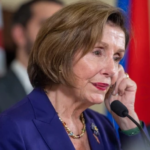How Does the Revised Indictment Reflect the Supreme Court Ruling?
Revised accusations against former President Donald Trump have been released by US prosecutors addressing claims about his intentions to meddle in the 2020 contest. The revised indictment negotiates a recent Supreme Court decision allowing presidents total protection from criminal prosecution for official actions. This decision had already put the case’s feasibility into question.
Under the direction of Department of Justice (DoJ) Special Counsel Jack Smith, the amended indictment seeks to realign the accusations to better represent Trump’s political candidacy rather than his standing as a seated president. Trump has angrily refuted claims that he pressed authorities to alter the election results, purposefully disseminated false information about election fraud, and intended to use a Capitol riot to postpone Joe Biden’s declaration of victory. Given the timeframe of this lawsuit and other criminal cases Trump is facing, it seems improbable that it will be heard before the next election on November 5.
What Are the Key Changes in the Revised Indictment?
Simplified from 45 to 36 pages, the new indictment changes the phrasing of the accusations in response to the Supreme Court’s decision on presidential immunity. According to the revised paper, Trump tried to influence the election by acting more as a private man than a president. “The defendant had no official responsibilities related to the certification proceeding, but he did have a personal interest as a candidate in being named the winner of the election,” the indictment adds one new line.
Another change tackles a lawsuit Trump’s campaign launched in Georgia. Although the prior indictment said the complaint was “filed in his name,” the new rendition makes clear it was “filed in his capacity as a candidate for president.”
The updated paper also removes the allegation that Trump pressed DoJ personnel to reverse his loss and omits allegations against Jeffrey Clark, a former DoJ staffer engaged in the bogus elector’s plot. Trump’s instructions to justice officials were not unlawful, the Supreme Court said.
What Are the Implications and Expert Opinions on the Revised Indictment?
The special counsel’s office has delivered the superseding indictment to a fresh grand jury that still needs to review case materials. Deciding whether enough proof exists to seek prosecution falls to a grand jury.
Notwithstanding the developments, some major accusations against Trump remain strong. Among these are efforts to get Vice President Mike Pence to block Biden’s certification. Talks between Trump and Pence probably come within “official” activities, shielded by presidential immunity based on Supreme Court rule.
Expert in constitutional law at Columbia Law School, Prof. Daniel Richman, said, “The updated indictment demonstrates an attempt to interpret the Supreme Court verdict in a way that enables the prosecution to proceed. It is still trying to determine if this strategy fits the Court’s presidential immunity paradigm. The Court was agonizingly ambiguous on whether private behavior by a president may be prosecuted criminally.
How Might the Revised Indictment Impact Trump's Legal Battles?
Given Prof. Richman’s suggestion that it will likely be heard after the 2024 election, the updated indictment might not speed up the matter. According to a source close to Trump’s legal team, the former president’s lawyers would ask for more time to get ready, possibly postponing the trial’s start should the judge approve.
This case chronicles Mr Smith’s appointment by Attorney General Merrick Garland in 2022 to supervise two federal investigations against Trump: one regarding sensitive materials moved to his Florida residence following office departure and another on election meddling.
Smith’s team recently appealed against the dismissal of the document lawsuit by a Florida court based on the violation of the US Constitution by establishing special counsels.
Following the historic Supreme Court ruling, both cases have unclear prospects. Likewise, a second prosecution in Georgia charges Trump and eighteen others with plotting to reverse his meager 2020 loss. Trump has entered not guilty; the date of trial is yet unknown.
What Is Trump's Future and Legal Strategy?
Trump awaits a sentence in New York in the meanwhile for falsifying company documents to conceal hush money payments made to a porn star. Should Trump successfully beat Democratic nominee Kamala Harris in November, he will likely command officials to dismiss the last federal accusations against him.
Robert F. Kennedy Jr. Sues North Carolina Election Board to Remove His Name from Ballot








